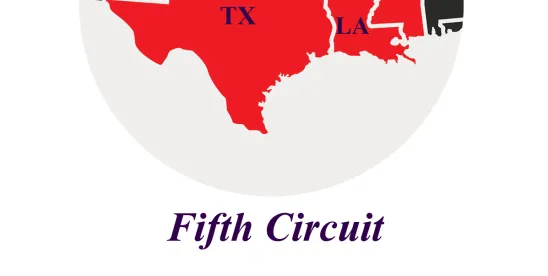On June 5, 2024, a three-judge panel in the U.S. Fifth Circuit Court of Appeals ruled that the Securities and Exchange Commission exceeded its statutory authority in adopting the so-called “Private Fund Advisers Rule” (or the Rule) and, accordingly, vacated the Rule in full.[1] The Court’s interpretation of the SEC’s rule-making authority over private fund sponsors under Section 206(4) and 211(h) of the Investment Advisers Act of 1940 (the Advisers Act) and the Dodd-Frank Wall Street and Consumer Reform Protection Act of 2010 (the Dodd-Frank Act) points to an unsuccessful conclusion to the SEC’s latest efforts to regulate and standardize certain business practices and customs of the private fund industry, and establishes clear limitations to the SEC’s ability to regulate the relationship between private fund sponsors and private fund investors under the Advisers Act.
How Did We Get Here?
The SEC proposed and ultimately adopted the Rule in August 2023, citing its authority under Section 211(h) and Section 206(4) of the Advisers Act, in order to increase transparency to private fund investors around fees, expenses, and performance metrics as well as contractual arrangements and business practices perceived to represent a conflict of interest for a private fund sponsor. Proponents and detractors of the Rule alike were in general agreement that it represented a significant expansion of the SEC’s oversight across the entire private funds industry, upending well-settled business practices by providing a regulatory prescription traditionally resolved through the negotiation of legal agreements by private fund sponsors and private fund investors. Signature features of the Rule included (i) the imposition of standardized reporting of fees, expenses, and performance metrics; (ii) restrictions and mandatory disclosure requirements for certain side letter arrangements, expense allocations across private funds advised by the same sponsor, clawback payments, and certain other transactions or business practices that the SEC deemed inconsistent with a sponsor’s duties under the Advisers Act; (iii) the procurement of a “fairness” opinion for certain adviser-led secondaries and fund restructuring transactions; and (iv) mandatory audits of private funds advised by SEC-registered investment advisers. For more information about the Rule, please refer to our August 2023 post.
In September 2023, six industry trade associations[2] brought a petition in the Fifth Circuit, seeking to have the Rule vacated on the basis that, among other things, the Rule exceeded the SEC’s statutory authority, violated the SEC’s rulemaking obligations under the Advisers Act, and violated the Administrative Procedures Act.[3]
Fifth Circuit Decision
The Court determined the SEC exceeded its statutory authority under Section 211(h) and Section 206(4) of the Advisers Act. With respect to Section 211(h), the Court applied principles of statutory interpretation to conclude Congress deliberately limited the SEC’s rule-making authority, purportedly granted under Title IX of the Dodd-Frank Act, to investment adviser relationships with “retail customers” as opposed to private funds or investors that participate in private funds. With respect to Section 206(4), which requires that the SEC “define” an act, practice, or course of business to be “fraudulent, deceptive or manipulative,” the Fifth Circuit determined that the SEC failed in large part to define the fraudulent acts or practices the Rule was intended to prevent, noting compliance with contractual provisions that elements of the Rule sought to supplant is “not fraud” and citing the SEC’s own observation of misconduct in 0.05% of investment advisers over a 17-year period as insufficient to establish evidence of fraud. As a result, the Court found no statutory authorization for the Rule under Section 211(h) and Section 206(4) of the Advisers Act and, accordingly, vacated the Rule in its entirety.
In reaching its conclusion with respect to Section 206(4) of the Advisers Act, the Court examined the broader statutory framework regulating registered and private funds alike, emphasizing that the Investment Company Act’s[5] highly prescriptive approach to the governance of registered investment companies expressly excludes private funds. As a result, the Court concluded “by congressional design, private funds are exempt from federal regulation of their internal ‘governance structure.’ The Commission cannot promulgate rules under the guise of [S]ection 206(4) [of the Advisers Act] that affects this internal governance structure.”
Potential Next Steps for the SEC
The SEC has limited options within the federal court system, should it wish to resuscitate the Rule. It is entitled to request an en banc rehearing by the full Fifth Circuit Court of Appeals by July 20, 2024, or petition the Supreme Court for certiorari by September 3, 2024. A new rule-making initiative is also possible but as a practical matter may be subject to the outcome of the U.S. presidential election in November 2024, which could usher in a new Chairman with different objectives and priorities than current Chairman Gary Gensler.
Further Implications Beyond the Private Fund Adviser Rules
The Court’s decision calls into question whether and to what extent the SEC’s rule-making authority under Section 206(4) of the Advisers Act can be relied upon to substantively regulate the business practices of, or supplant contractual provisions negotiated between, private fund sponsors and private fund investors or impose restrictions around the conduct of private fund sponsors designed to prevent fraudulent, deceptive, or manipulative business practices in the absence of sufficient evidence demonstrating the conduct is (or gives rise to) fraudulent, deceptive, or manipulative behavior. While the Court’s decision is limited to the Private Fund Adviser Rules, the SEC’s basis for other proposed and previously adopted rules governing private investment funds, pursuant to Section 206(4) of the Advisers Act, could become subject to challenge as a result.
Nevertheless, private fund sponsors should understand that the Rule’s various restrictions, prohibitions, and prescriptions could form the basis for investor negotiations during future fundraising efforts. Moreover, and perhaps most importantly, the SEC will continue to be guided by the transparency and conflict-mitigation principles underlying the Rule during examinations, investigations, and enforcement sweeps. To that end, private fund sponsors would be well advised to remember that the Advisers Act’s traditional remit of fiduciary considerations and the duty to disclose actual or potential conflicts of interest survive the Fifth Circuit’s decision and will continue to provide a lens through which the SEC can shine a light on conduct the Rule was intended to address.
[1] The vacated rules include the Preferential Treatment Rule, the Restricted Activities Rule, the Quarterly Statement Rule, the Advisers-Led Secondaries Rules, and the Private Fund Audit Rule as well as related amendments to the existing Compliance Rule and the Books and Records Rule. For more information about these rules, please refer to this Foley publication.
[2] National Association of Private Fund Managers, Alternative Investment Management Association, American Investment Council, Loan Syndications and Trading Association, Managed Funds Association, National Venture Capital Association.
[3] https://www.mfaalts.org/wp-content/uploads/2023/09/MFA-Filing.pdf
[4] https://www.ca5.uscourts.gov/opinions/pub/23/23-60471CV0.pdf
[5] The Investment Company Act of 1940








 />i
/>i

